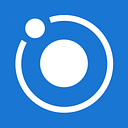How you use the QBank is more important than selecting the perfect one
Updated April 24, 2021
As the variety of question banks for the Core Exam continues to multiply, our resident physicians at Core Physics Review have begun to ask about which question banks are best for physics and clinical training. Knowing how to use QBanks is more important than selecting the perfect one.
This post is about how to use QBanks, but you’ll still want to know which QBanks to purchase. For that, answer this Google poll, and see what your classmates are recommending: https://forms.gle/33bit47qJRfsB65TA
Qbanks are written by mere mortals
Questions are typically written by resident physicians and faculty, some of whom actually took the Core Exam. All of them are mere mortals. I know this because I wrote the 200 question MCQ Checkpoints for Core Physics Online, and another 300 audience-polled questions for the Core Physics Live PowerPoint-based review. And my friend and colleague from medical school co-wrote one of the most popular other question banks.
Don’t expect the QBanks to be a secret portal into the minds of the Core Exam writers. Expect typos in questions, and seek your faculty for confirmation when you encounter possible black pearls. With Core Physics Review, our resident physicians over the past 7 years have been instrumental in cleaning out black pearls, both in the online + live MCQs and in Radiology Simplified. Newer QBanks will have more errors than older ones, but you’re smart enough to spot a black pearl.
Quality over quantity
Too often, resident physicians compare notes on the sheer volume of questions they’ve answered. Some of my classmates answered more than 3,000 questions before entering the Core. I’m not sure that I finished even 1,000 questions. The problem with trying to hit a large number of questions is that you may find your brain turned off, while your fingers click up a storm. At best, this is a good workout for your fingers, and at worst, a complete waste of time.
When you answer MCQs, take time to read the question and explanations. Understand why you got an answer right or wrong. Use the question to stimulate a brief self-inquiry on related topics. Take a micro excursion in to related material using your favorite reference, like Radiopaedia. This way, you’re reinforcing and consolidating knowledge, stimulated by the MCQs.
Aim for breadth and depth
Early in the year, your study focuses on more lengthy text excerpts (I highly recommend reading Mettler cover-to-cover for nuclear medicine). In the months before the exam, you should be ramping up your MCQs. That’s because the primary purpose of MCQs is to maintain strength in your synapses across the wide range of subjects that you’ve mastered. Even by answering a few questions in an area, your brain is reinforcing neighboring concepts through associative memory.
When you’re early in the year, it’s ok to do a whole bunch of MCQs in one area that you’re studying. When you’re a month or so out from the exam, be sure you’re mixing MCQs across a variety of topic areas, and not just doing a whole week of one subject. If you find you’re still particularly week in a specific subject, it’s totally ok to do a block of MCQs in that single subject.
Bottom Line
Using any Qbank is more important than selecting the perfect Qbank. Figure out a QBank that meets your budget, learning style, and aesthetics. And for Roentgen’s sake, keep your mind awake when you’re clicking away.
— Ram Srinivasan
Ram Srinivasan MD PhD is Course Director at Core Physics Review, founder at Orbit Discovery, and a practicing radiologist and engineer in the Bay Area. Follow Core Physics Review on Facebook or Twitter.
